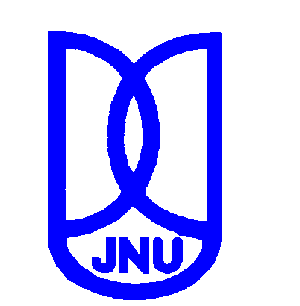         
 Our
email Our
email
Your Visitor Number: 
Since
from 1999.
|
Interlinking
of rivers — II
THE HINDU [MARCH 27, 2003]
A. Vaidyanathan
ENTHUSIASTS OF interlinking of rivers tend to be dismissive of
the concerns over the environmental and human consequences of the project.
They claim that these fears are vastly exaggerated or argue that they are
unavoidable costs of "development" and that they should not be allowed to
hold back the project. One has to be extraordinarily insensitive not to
recognise the consequences of ignoring these aspects in our water resource
planning in the past. They are reflected in the callous manner in which
displaced persons have been treated, land degradation due to misuse of
water, depletion of groundwater and the growing pollution of water
sources. The experience of the Indira Gandhi Canal is a stark example of
the problems arising in the wake of bringing in vast amounts of water
without adequate understanding of and concern for its impact on the
fragile desert ecology.
Interlinking
of rivers — I
THE HINDU [MARCH 26, 2003]
A. Vaidyanathan
THE CONCEPT of interlinking rivers is evidently appealing to
considerable sections of the general public and to policy-makers. More
than three decades ago, K. L. Rao proposed the linking of the Ganga and
the Cauvery. It was followed by Dastur’s plan for a garden canal, linking
all the major rivers in the country. Both the proposals attracted
considerable attention. But due to widespread criticism of their
feasibility, desirability and viability, these were shelved.
Saving science
for our future — II
THE HINDU [MARCH 21, 2003]
C.N.R.
RaoWe have to establish a few centres devoted to first-rate
science education, with flexible curricula and varied professional
opportunities.
No escape
from changing cropping pattern: experts
THE HINDU [MARCH 20,
2003]
S. VydhianathanCHENNAI March 19. What with unpredictable
monsoons and non-release of water by neighbours, it has become imperative
for Tamil Nadu to think of a change in the cropping pattern, which will
require less water but ensure higher productivity. There is no point
cultivating high water-consuming paddy and sugarcane when availability has
been going down consistently over the years, agriculture experts here say.
'Saving
science for our future - I
THE HINDU [MARCH 20, 2003]
C.N.R.
RaoOver emphasis on information technology and management related
subjects has denuded other areas of talent.
THERE HAS been much debate
and discussion in recent years on the state of science in the country and
the matter has assumed greater seriousness in the last year or so because
of the oft-repeated statement that there is a noticeable decline in the
quality and quantity of the Indian contribution to science. It is not my
purpose to examine the arguments for or against it. I do not also want to
get into the semantics of pure versus applied science, for I do not
believe in such distinctions. While one may or may not agree that there is
a definite decline, one has to admit that the amount of good quality
science being carried out in the country does not satisfy one’s dreams and
expectations. It is essential that we are first rate in science if our
technological efforts have to be competitive, since there appears to be
little doubt that only those countries that have achieved scientific
excellence possess an all-round technological superiority. Equally
importantly, intellectual leadership is an attribute that not only
enhances our self-esteem but also attracts international interest in
various spheres, including investment.
|
          |






















